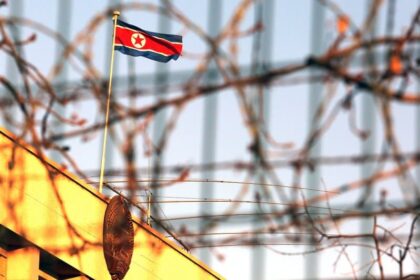The Rise of Online Gambling in the Philippines
In recent years, online gambling has exploded in popularity across the Philippines, transforming from a niche pastime into a major social and economic force. For many Filipinos, the allure of quick winnings and the convenience of betting from a smartphone have made online gambling platforms nearly irresistible. But as stories of addiction, financial ruin, and broken families become more common, the nation is grappling with how to regulate an industry that is both lucrative and deeply problematic.
- The Rise of Online Gambling in the Philippines
- Personal Stories: From Hope to Hardship
- How Online Gambling Became Ubiquitous
- Government Response: Regulation, Bans, and Debate
- Why Is Online Gambling So Addictive?
- The Economic Dilemma: Revenue vs. Responsibility
- What’s Next for Online Gambling Regulation?
- In Summary
Personal Stories: From Hope to Hardship
For Ana Reyes (not her real name), a 28-year-old clothes vendor from Davao del Norte, online gambling began with a small bet and a big win. After seeing a Facebook ad in 2023, she deposited 100 pesos (about S$2.25) via the popular e-wallet GCash and won 3,000 pesos on an online slot game. As a mother of two, married to a street vendor selling balut (fertilized duck eggs), the windfall felt like a miracle.
“As a first-time player, I was so happy,” Ana recalled. “I honestly thought online gambling would finally help us escape poverty.” Her luck continued for a while, with one bet netting her 30,000 pesos. But the initial thrill quickly gave way to mounting losses. Ana and her husband became hooked, borrowing money from friends and deceiving loved ones to keep playing. After a year of addiction and escalating arguments, Ana broke the cycle by deleting gambling apps, blocking platforms, and destroying her betting SIM card.
“I really hope the government bans online gambling,” she said. “It’s a big no. It almost destroyed my family.” Ana’s experience is far from unique. Across the Philippines, similar stories are emerging as online gambling seeps into households, affecting people from all walks of life.
How Online Gambling Became Ubiquitous
Online gambling’s rapid growth in the Philippines is driven by several factors:
- Accessibility: With smartphones and e-wallets like GCash and Maya, anyone can place a bet in seconds.
- Advertising: Gambling ads are everywhere—from social media feeds to billboards along major highways.
- Low Barriers to Entry: Bets can start as low as 20 pesos, making it easy for even students to participate.
- Legalization and Regulation: Over 80 gaming platforms are legally registered with the government, and the state-run Philippine Amusement and Gaming Corporation (Pagcor) oversees the industry.
From January to May 2025, Pagcor reported gross gaming revenues from e-games of 51.39 billion pesos. In 2024, these platforms generated 154.51 billion pesos in government revenue, up from 58.16 billion pesos in 2023. This revenue is crucial for the government, but it comes at a growing social cost.
The Social Impact: Addiction and Family Breakdown
Support groups for gambling addicts have proliferated on Facebook and Reddit, with users sharing confessions about hidden debts, broken relationships, and even suicide attempts. One student admitted to stealing his mother’s credit card information to keep betting. The ease of access means that gambling is just a click away for anyone with a smartphone, making it especially dangerous for young people and vulnerable populations.
Jon Ty, chairman of Bridges of Hope—a network of 13 rehabilitation centers—has witnessed the surge in gambling addiction firsthand. “Before the Covid-19 pandemic, maybe two in every 10 of our patients were hooked on gambling, but online platforms weren’t a thing then. Now, seven out of 10 monthly admissions are addicted to online gaming,” he said. As a recovered casino addict himself, Ty emphasized how much easier it is to gamble now: “When I was addicted, I had to dress up and drive to a brick-and-mortar casino. Nowadays, it’s more convenient for anybody just to grab their cellphones and gamble while they’re in the bathroom, working, or at home.”
Government Response: Regulation, Bans, and Debate
The Philippine government has taken steps to address the issue, but the response has been mixed and sometimes controversial. In 2024, President Ferdinand Marcos Jr. banned offshore online casinos (known as Pogos) that were linked to Chinese crime syndicates. However, locally operated online gambling platforms remain legal and continue to thrive.
Lawmakers and church leaders have raised alarms about the social costs. Cardinal Pablo Virgilio David, president of the Catholic Bishops’ Conference of the Philippines, wrote in a Facebook post:
It’s clear that online gambling is no longer just a simple form of entertainment. It has become a deep and widespread moral problem, hidden behind the guise of leisure and technology.
Senator Juan Miguel Zubiri filed a bill in July 2025 seeking to ban e-gambling entirely, citing concerns over lax enforcement and the platforms’ accessibility. “We already shut the doors on Pogos for the damage they caused. But an even more dangerous problem has crept into our homes: online gambling that targets our own people,” he said.
Other lawmakers, like Senator Sherwin Gatchalian, argue for tighter regulation rather than an outright ban. Gatchalian’s bill proposes raising the minimum playing age from 18 to 21, requiring identity verification, setting a 10,000 peso minimum bet, a 5,000 peso top-up limit, and banning celebrity endorsements. He explained:
A lot of our basketball players, for example, are being idolized by the youth. Then all of a sudden, they see their idol promoting gambling. They have to be responsible because their identity is power, their fame is power.
Gatchalian also warned that a total ban could drive gambling underground, making it harder to monitor and regulate.
Industry and Regulator Actions
Under public pressure, Pagcor has ordered the removal of e-gambling billboard ads and pledged to limit television promotions. Licensees, suppliers, and gaming venue operators have until August 15 to remove ad materials. Local fintech companies like GCash and Maya have agreed to strengthen age verification and monitoring systems, but critics argue that these safeguards are still too easy to bypass, especially for tech-savvy youth.
President Marcos has yet to take a definitive stance on whether to regulate or ban online gambling, though his spokesman has said he is open to taxing the industry “if well studied.” The debate continues as the government weighs the benefits of revenue against the mounting social costs.
Why Is Online Gambling So Addictive?
Online gambling’s addictive potential lies in its design and accessibility. Unlike traditional casinos, which require travel and a certain level of effort, online platforms are available 24/7 on any internet-connected device. Features such as instant deposits, rapid gameplay, and constant notifications keep users engaged and make it easy to lose track of time and money.
Psychologists note that gambling addiction shares similarities with substance abuse disorders. The brain’s reward system is activated by the anticipation and experience of winning, releasing dopamine and reinforcing the behavior. Over time, players may chase losses, bet more than they can afford, and hide their activities from loved ones.
For young people, the risks are even greater. The combination of peer influence, celebrity endorsements, and the thrill of risk-taking can make online gambling especially appealing. Without strong safeguards, many fall into patterns of secretive and compulsive betting.
The Economic Dilemma: Revenue vs. Responsibility
Online gambling is a major source of government revenue in the Philippines. The industry supports jobs, funds public programs, and contributes to economic growth. However, the social costs—addiction, family breakdown, and financial hardship—are becoming harder to ignore.
Some policymakers argue that the government should focus on promoting physical casinos, which are harder to access and require significant investment in facilities and employment. As Senator Gatchalian noted, “Brick-and-mortar casinos are required to invest in facilities. So you see hard investments, you see employment. Whereas for e-games, it’s just one room with servers and a few people running it.”
Others believe that the government should explore alternative sources of revenue and invest in public education, addiction treatment, and stronger regulation to protect vulnerable populations.
What’s Next for Online Gambling Regulation?
The future of online gambling in the Philippines remains uncertain. Lawmakers are divided between those calling for a total ban and those advocating for stricter regulation. Meanwhile, the industry continues to grow, fueled by technological innovation and aggressive marketing.
For recovering addicts like Ana Reyes, the hope is that the government will act decisively to prevent others from falling into the same trap. “These e-games teach you how to lie, how to hurt your family. So I completely support all efforts of our government now to stop it,” she said.
In Summary
- Online gambling has become a widespread phenomenon in the Philippines, driven by accessibility, aggressive advertising, and legal regulation.
- Personal stories highlight the devastating impact of addiction on families and individuals, with support groups reporting a surge in cases.
- The government faces a dilemma: online gambling generates significant revenue but also causes social harm.
- Lawmakers are divided between banning online gambling and implementing stricter regulations, such as higher age limits and betting caps.
- Industry and regulators have begun to limit advertising and strengthen safeguards, but critics say more needs to be done.
- The debate continues as the Philippines seeks to balance economic interests with social responsibility and public health.












